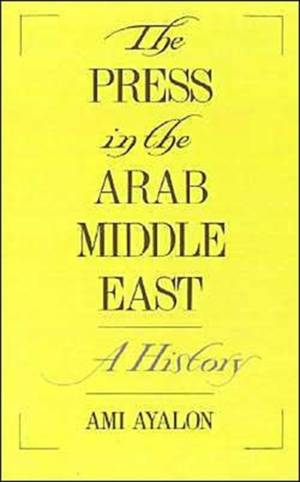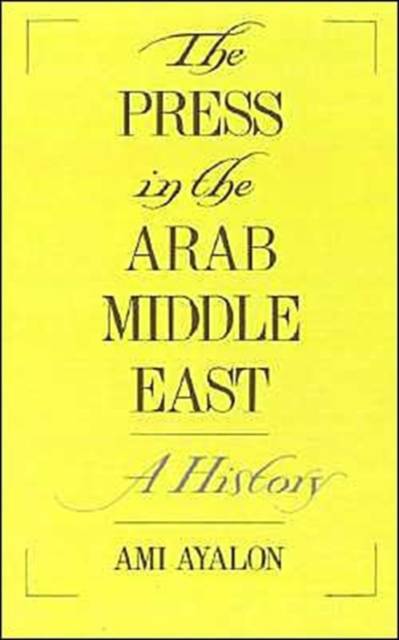
- Afhalen na 1 uur in een winkel met voorraad
- Gratis thuislevering in België vanaf € 30
- Ruim aanbod met 7 miljoen producten
- Afhalen na 1 uur in een winkel met voorraad
- Gratis thuislevering in België vanaf € 30
- Ruim aanbod met 7 miljoen producten
Zoeken
Omschrijving
Newspapers and the practice of journalism began in the Middle East in the nineteenth century and evolved during a period of accelerated sociopolitical and cultural change. Inspired by a foreign model, the Arab press developed in its own way, in terms of its political and social roles, cultural function, and the public image of those who engaged in it. Ami Ayalon draws on a broad array of primary sources--a century of Arabic newspapers, biographies and memoirs of Arab journalists and politicians, and archival material--as well as a large body of published studies, to portray the remarkable vitality of Arab journalism. He explores the press as a Middle Eastern institution during its formative century before World War II and the circumstances that shaped its growth, tracing its impact, in turn, on local historical developments. After treating the major phases in chronological sequence, he looks closely at more specific aspects: the relations between press and state; newspapers and their audience; the press and traditional cultural norms; economic aspects of the trade; and journalism as a new profession in Arab society.
Specificaties
Betrokkenen
- Auteur(s):
- Uitgeverij:
Inhoud
- Aantal bladzijden:
- 320
- Taal:
- Engels
- Reeks:
Eigenschappen
- Productcode (EAN):
- 9780195087802
- Verschijningsdatum:
- 23/03/1995
- Uitvoering:
- Hardcover
- Formaat:
- Genaaid
- Afmetingen:
- 162 mm x 237 mm
- Gewicht:
- 635 g

Alleen bij Standaard Boekhandel
+ 418 punten op je klantenkaart van Standaard Boekhandel
Beoordelingen
We publiceren alleen reviews die voldoen aan de voorwaarden voor reviews. Bekijk onze voorwaarden voor reviews.











